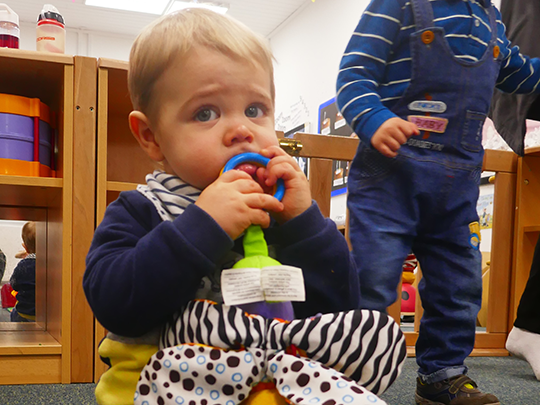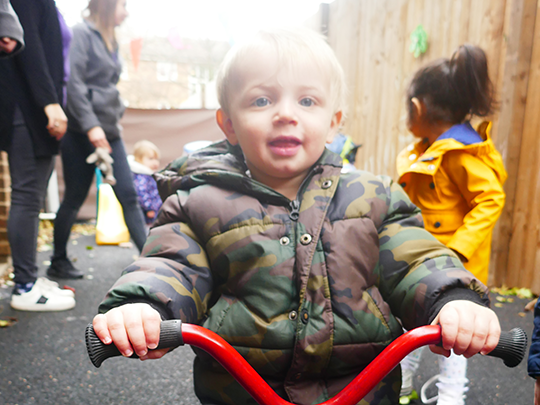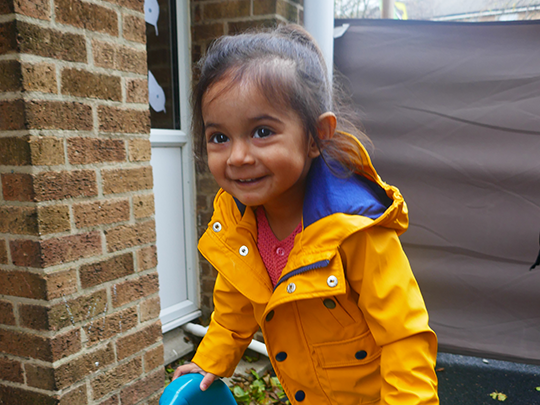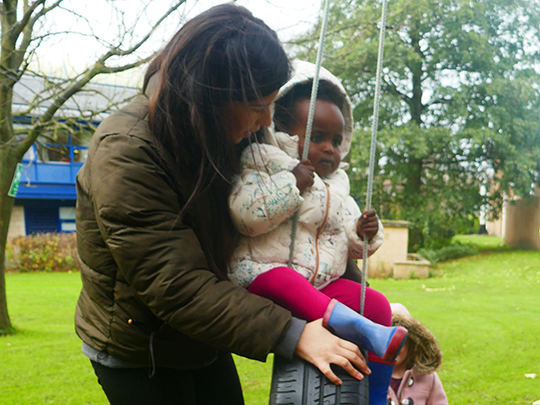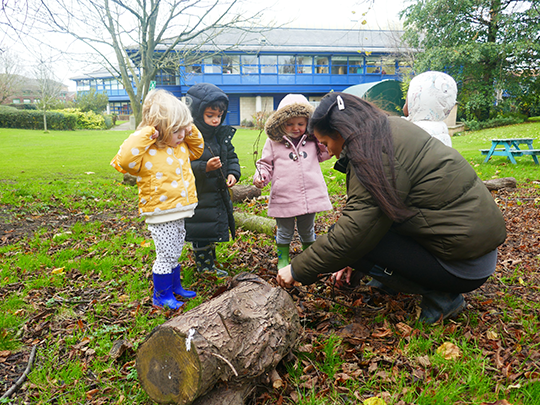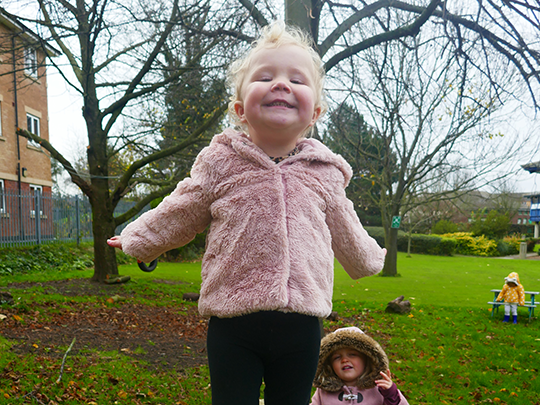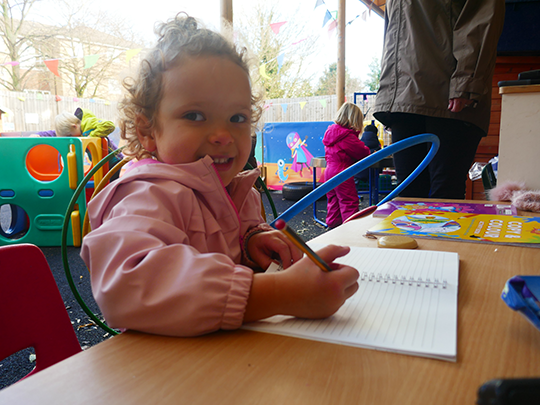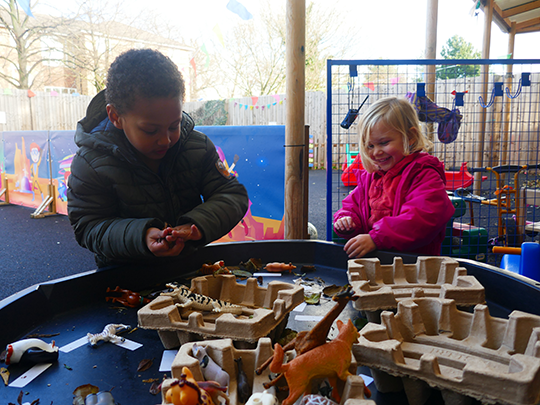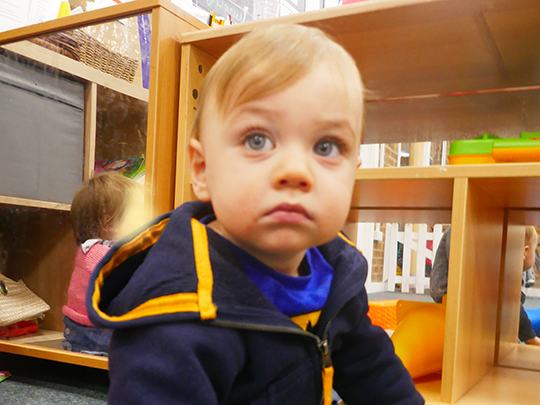On arrival, depending on your child’s age, you and your child will be welcomed into either Orange group, Pre-School Green or Pre-School Blue. Babies and Toddlers use the main dining hall during breakfast time. Breakfast is available from 8.00am until 8.45am and comprises of a variety of cereal, fruit and a drink of milk or water. We encourage the children to sit down together to enjoy their breakfast although some children may prefer to play for a while before settling down to breakfast.
After breakfast time the children will begin their daily planned activities. All groups make use of the outdoor space throughout the day. The playground can be sectioned using our wooden trellis fencing to create areas for the children to explore.
A light healthy snack is served at 10.00am after which the children settle back into their activities.
Lunch comprises of two courses and is served from 11.30am.Meals are prepared daily, onsite in the nursery’s own kitchen by the nursery chef. All diets are catered for and the food is prepared daily.
During the afternoon the younger children are offered a sleep while other children continue their daily activities.
A light afternoon tea is served around 3.30pm after which the children continue with their play.
Early Years Foundation Stage (EYFS)
At Radmoor Nursery the EYFS underpins all areas of our curriculum. Practice and Policies are developed in line with the statutory framework for the early years foundation stage.
The EYFS overarching principles are:
- Every child is a unique child, who is constantly learning and can be resilient, capable, confident and self-assured
- Children learn to be strong and independent through positive relationships
- Children learn and develop well in enabling environments, in which their experiences respond to their individual needs and there is a strong partnership between practitioners and parents and/or carers
- Children develop and learn in different ways and at different rates
The EYFS aims to ensure that all children have the best start in life regardless of their background and applies to all children from birth. The EYFS framework sets out developmental goals and key areas of learning around which activities and experiences should be based.
The Early Years Foundation Stage (EYFS) curriculum concentrates on the following seven areas:
- Communication and language
- Physical development
- Personal, social and emotional development
- Literacy
- Mathematics
- Understanding of the world
- Expressive arts and design
Planning is completed in all rooms. After gaining knowledge of the childs interests, activities are planned around the children’s individual needs. Next steps will be generated to enhance children’s learning and further development. Where a child shows an interest in something, staff use this to extend a child’s learning and development thorough ‘planning in the moment’.
A ‘Learning Journey’ folder is compiled for all children throughout their time at the nursery. Activities, learning and social developments are observed and recorded relating back to the EYFS aims. The ‘Learning Journey’ documents your child’s progression and where applicable, how they are being prepared for their next steps. Transitions and progress summaries are completed at regular intervals. At around 2 years old, your child will have a progress check with their health visitor. The nursery practitioners will provide support where needed with this check.
When your child is in Pre-School Blue, they will begin a transition to school process. Your child will have the opportunity to visit their new school with their key person; their teacher may even visit our nursery. During this time, the practitioners will introduce a more structured routine very similar to that of a school day.
You will have the opportunity to meet with your child’s ‘Key Person’ on a one to one basis throughout the year to discuss their continuing development. It is also an opportunity for both Key Person and parent/carer to share additional information in order to extend the child’s learning and development.
